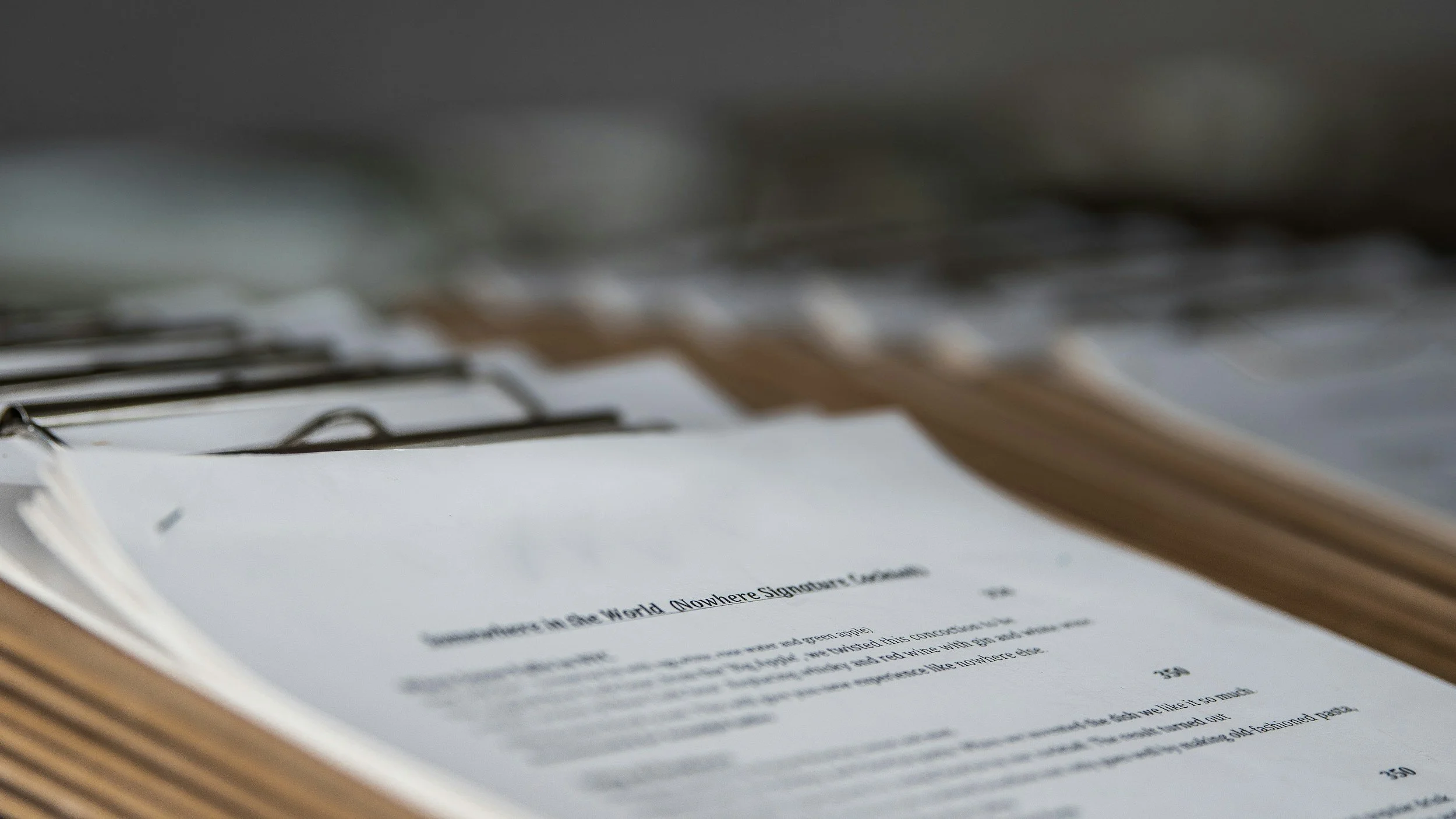
When Can a Landlord Restrict or Terminate a Service or Facility?
In British Columbia, landlords cannot remove or restrict services or facilities included in a tenancy agreement without meeting specific legal requirements. Whether it’s parking, laundry access, or building amenities, the Residential Tenancy Act and RTB policy guidelines protect tenants from sudden changes that affect the liveability of their home. This article explains when landlords can lawfully make changes and what tenants can do if they’re affected.

Understanding Responsibilities for Residential Premises in BC
In British Columbia, both landlords and tenants share responsibilities for maintaining rental properties. The Residential Tenancy Act and RTB policy guidelines outline who is responsible for repairs, cleanliness, and upkeep, and clarify the difference between normal wear and tear and tenant-caused damage. This article explains those duties and how they affect tenancy agreements and damage disputes.

What Are the Rules and Responsibilities Around Having Pets in a Rental Unit?
In British Columbia, landlords have the legal right to prohibit pets or place restrictions on them in rental units. However, tenants also have rights and responsibilities when it comes to pet ownership, including protections for certified guide and service dogs. This article explains the rules under the Residential Tenancy Act, including pet deposits, lease terms, and how to avoid disputes.

How Service of Legal Records Works Under BC’s Residential Tenancy Act
In British Columbia, serving legal documents properly is a critical step in resolving landlord-tenant disputes. Whether delivering an eviction notice, filing for dispute resolution, or sending decisions, the Residential Tenancy Act sets out specific rules for how and when documents must be served. This guide explains the approved methods, timelines, and what to do if service is challenged.

Understanding Personal Use Evictions in BC
In British Columbia, a landlord can end a tenancy if they or a close family member intend to move into the rental unit. This is called a personal use eviction, and it is strictly regulated under the Residential Tenancy Act. Learn what qualifies as personal use, the notice and compensation rules landlords must follow, and how tenants can respond if they believe the eviction is not legitimate.

RTB to Launch Public Monetary Order Database
Starting July 31, 2025, the Residential Tenancy Branch will publish all monetary orders in a public, searchable database — including the names of landlords and tenants, rental addresses, and amounts owed. Learn what details will be disclosed, who qualifies for a safety-based exemption, and how to apply for one if public disclosure could put you at risk.

What Are the Essential Terms in a Tenancy Agreement?
A tenancy agreement in British Columbia must include specific legal terms to be valid under the Residential Tenancy Act and Regulation. From rent details and start dates to required standard terms and deposit rules, this article breaks down what every BC tenancy agreement must contain — and how landlords and tenants can ensure their contract is legally compliant.

Can Landlords Enforce a 14‑Day Guest Limit in BC?
In British Columbia, tenancy laws protect a tenant’s right to host visitors — and most blanket guest restrictions, including annual caps, are considered unreasonable and unenforceable. This article explains your rights under the Residential Tenancy Regulation and what to do if a landlord tries to enforce such a rule.

What Are the Rules for Disposing of a Tenant’s Abandoned Property in BC?
Tenants in British Columbia are legally entitled to enjoy their home in peace. Under the Residential Tenancy Act, this right to "quiet enjoyment" protects renters from persistent disturbances, unauthorized landlord entries, harassment, and more. Understanding what qualifies as a breach—and what steps you can take—can help you maintain a safe, comfortable living environment.

What Is a Tenant’s Right to Quiet Enjoyment in BC?
In British Columbia, tenants are legally entitled to quiet enjoyment of their rental unit, meaning the right to live with reasonable peace, privacy, and freedom from persistent disturbances. This article explains what quiet enjoyment includes, how to identify a breach, and what steps tenants can take under the Residential Tenancy Act if their rights are violated.

What Are the Rules Around Guests in a Rental Unit in BC
n British Columbia, tenants have the right to host guests in their rental unit under the Residential Tenancy Act, but that right comes with boundaries. This article outlines how guest rights are treated under BC tenancy law, how to handle disputes, and what exceptions apply in supportive housing.

What Legal Rights Do You Have When Living with Roommates in BC?
Living with roommates in BC? Your legal rights depend on how the arrangement is structured. Whether you're co-tenants, have separate agreements, or are an unofficial occupant, each situation carries different responsibilities and protections under the Residential Tenancy Act. Understanding your status can help you avoid legal and financial issues.

What Are the New 12-Month Occupancy Rules for Landlords After Eviction?
Recent amendments to British Columbia’s Residential Tenancy Act have introduced a mandatory 12-month occupancy period for landlords who end tenancies on the grounds of personal use. This article explores the intent, implications, and enforcement of the new rule within the broader context of BC’s evolving rental housing framework.

What Are Your Rights If a Landlord Falsely Claims They Need to Move In?
If your landlord asked you to move out so they or a family member could move in, but never followed through, you may have experienced a bad-faith eviction. This article explains your rights, how to spot a bad-faith eviction, and what steps to take to protect yourself.

When Can a Landlord Evict a Tenant for Cause in British Columbia?
Landlords in BC can evict tenants for cause, like property damage or illegal activity, but must follow strict rules under the Residential Tenancy Act. This article outlines the legal grounds, notice requirements, and tenant rights to dispute an eviction.

What Can a Tenant Do If Their Lease Is Ending but They Want to Stay?
In British Columbia, tenants are not automatically required to move out at the end of a fixed-term lease. Unless the landlord or a close family member plans to move in for at least six months, and this was clearly stated in the lease, the tenancy typically continues month-to-month. This article explains when tenants must vacate and when they have the right to stay.

What Must Be Included in a Legally Valid Condition Inspection Report in BC?
This article outlines what must be included in a legally valid Condition Inspection Report under British Columbia’s Residential Tenancy Regulation. Whether using the official RTB form or a custom version, landlords must ensure it contains key information such as names, dates, a detailed assessment of the unit’s condition, and signatures from both parties.

What Can a Tenant Do If Their Landlord Doesn’t Pay a Monetary Order?
If your landlord refuses to pay a monetary order issued by the Residential Tenancy Branch, you may need to take enforcement steps through Small Claims Court. This article outlines your legal options in British Columbia, including requesting a payment hearing, garnishing wages or bank accounts, seizing personal property, and registering the debt against the landlord’s real estate.

When Can a Landlord Enter a Rental Unit in BC?
Landlords in British Columbia can only enter a tenant’s rental unit under specific circumstances and with proper notice, as set out in the Residential Tenancy Act. This article explains when entry is allowed, what notice must be given, and the rights tenants have if those rules aren’t followed.

How Landlords Can Navigate Tenant Evictions Under British Columbia’s RTA
This article outlines the most common legal reasons for ending a tenancy in British Columbia - non-payment of rent, breach of agreement, and landlord use of property. It explains required notice periods, tenant dispute rights, and updated rules under the Residential Tenancy Act. For all eviction types, visit the Residential Tenancy Branch website.

